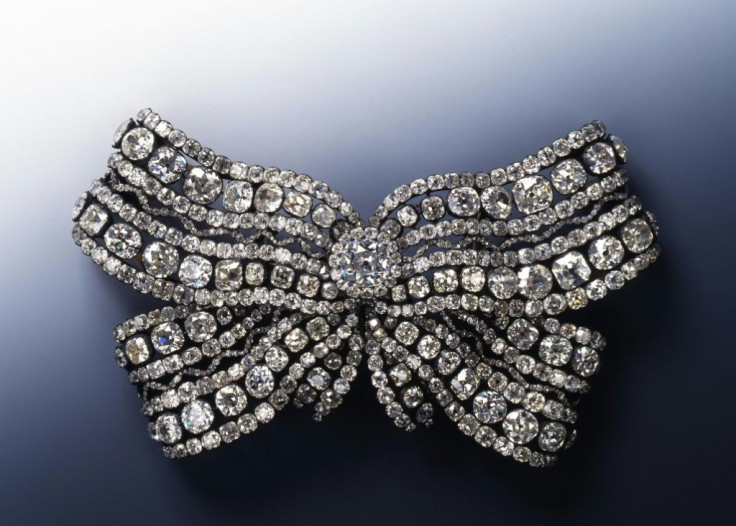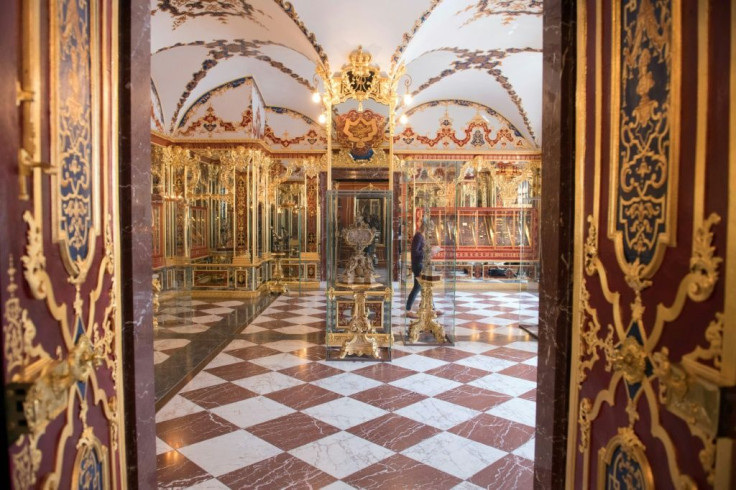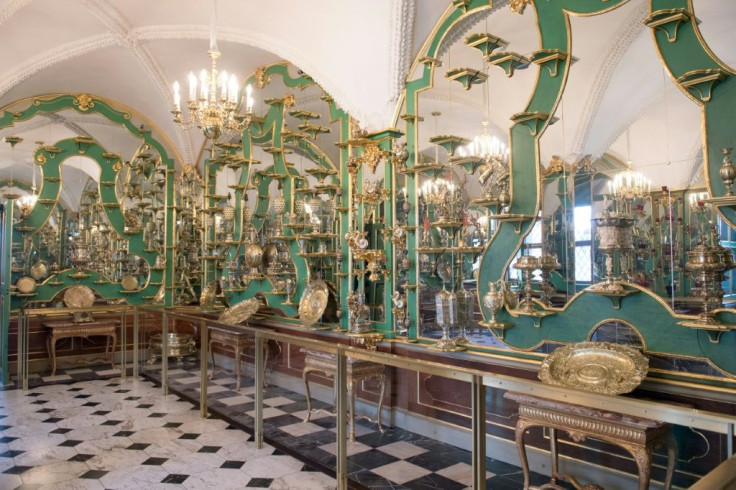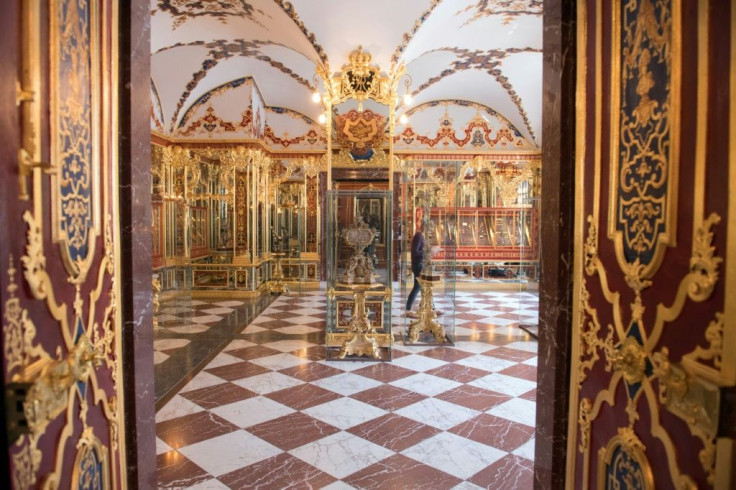Police Hunt Suspects In Spectacular Dresden Jewellery Heist

Police in Germany were Tuesday hunting robbers who snatched priceless 18th-century jewellery from a state museum in Dresden in what local media have called the biggest art heist in modern history.
Authorities across eastern Germany have been put on alert after thieves made off with treasures from the Green Vault at Dresden's Royal Palace in an astonishing smash-and-grab raid early Monday morning.
Police called on witnesses to step forward and released images of the stolen items, which were taken from a collection of jewellery of 18th-century Saxony ruler Augustus the Strong and which experts say may never be recovered.
The images included a sword whose hilt was encrusted with nine large and 770 smaller diamonds, and a diamond bow decorated with 662 brilliants.
Yet museum directors announced that the losses had been less dramatic than initially feared.

"There are more items left over than we thought. It is a good thing it was dark, because that meant a lot of the works were overlooked," said Marion Ackermann, director of Dresden's state art collections.

The thieves launched their brazen raid after having set off a fire in an electrical panel near the museum in the early hours of Monday, plunging nearby streets into darkness.
Despite the power cut, the suspects were caught on CCTV footage later released by police.

In the black-and-white clip, one of the two suspects was seen using an axe to smash the display case.
The thieves then fled in an Audi A6 and remain on the run.

The getaway car was then set on fire at a nearby garage shortly after the robbery, police confirmed.
Chief investigator Olaf Richter said Tuesday evening that it had been a "targeted and prepared crime".
On Monday evening, Dresden police chief Joerg Kubiessa told broadcaster ZDF that a "criminal gang" may be behind the robbery.

Dresden police said they were also in contact with colleagues in Berlin to explore possible connections to a similar heist in the capital two years ago.
In 2017, a 100-kilogramme (220-pound), 24-karat giant gold coin was stolen from Berlin's Bode Museum. Four men with links to a notorious Berlin gang were later arrested and put on trial.
The coin has never been recovered, and fears are growing that the Dresden treasures will also remain lost forever.
Though Handelsblatt and Bild newspapers called the theft the "biggest art heist in modern history", museum directors have refused to put a financial figure on the value of the haul.
"We cannot put an exact value on them because they are priceless," said Ackermann on Monday.
Green Vault director Dirk Syndram warned the robbers would be "stupid" to extract the diamonds from individual pieces for sale separately.
"They're all 18th-century cuts. You can't just turn these stones into cash," he told DPA news agency, adding that breaking them up would lower their value.
But Tobias Kormind, the managing director of diamond retailer 77 Diamonds, told AFP that if the jewels were recut into modern stones, they would have "zero traceability".
He suggested that the thieves may plan to recut the diamonds in different places before releasing them into the market over a number of years.
"They might mix them up in parcels that are being bought from elsewhere, so they look like they have traceability and origin. Unfortunately, it is the most transportable form of wealth," said Kormind.
Founded by Augustus the Strong, Elector of Saxony in 1723, the Green Vault is one of the oldest museums in Europe.
After the Royal Palace suffered severe damage in World War Two, the museum remained closed for decades before it was restored and re-opened in 2006.
German Culture Minister Monika Gruetters said that protection of museums and cultural institutions was now of "the highest priority".
© Copyright AFP {{Year}}. All rights reserved.





















